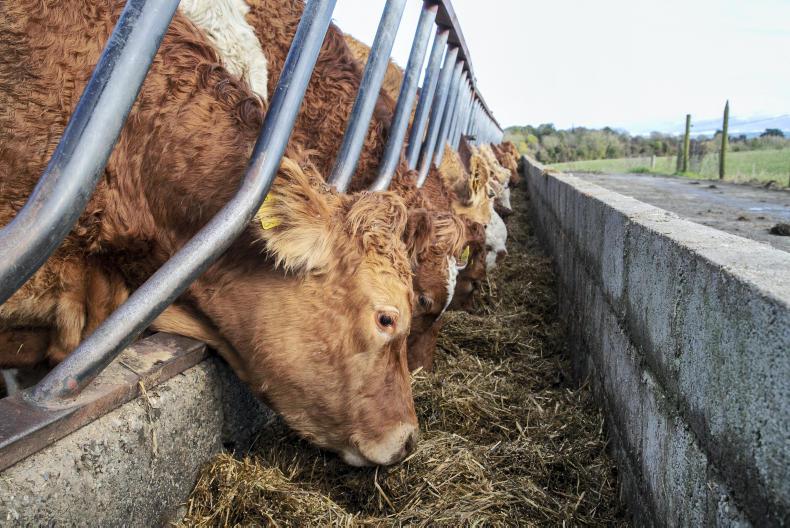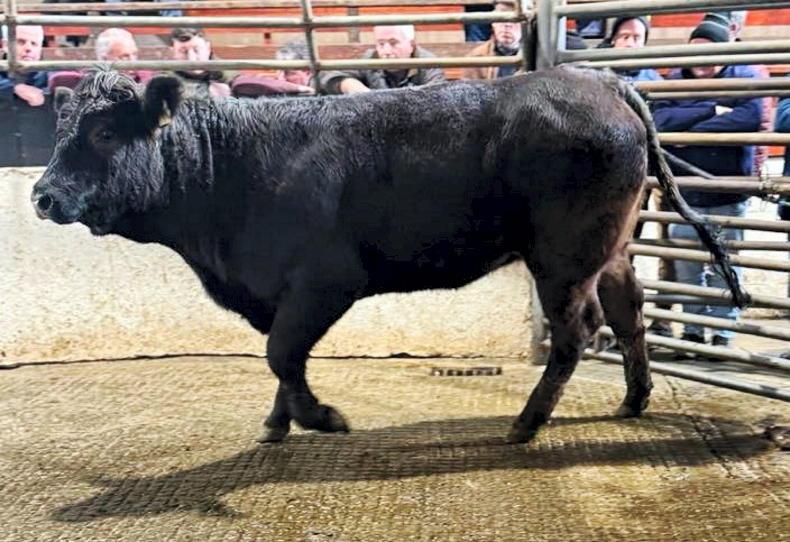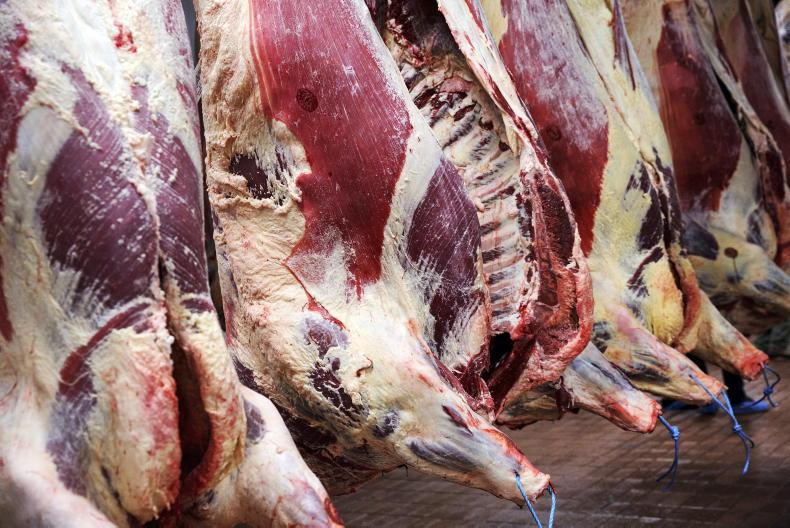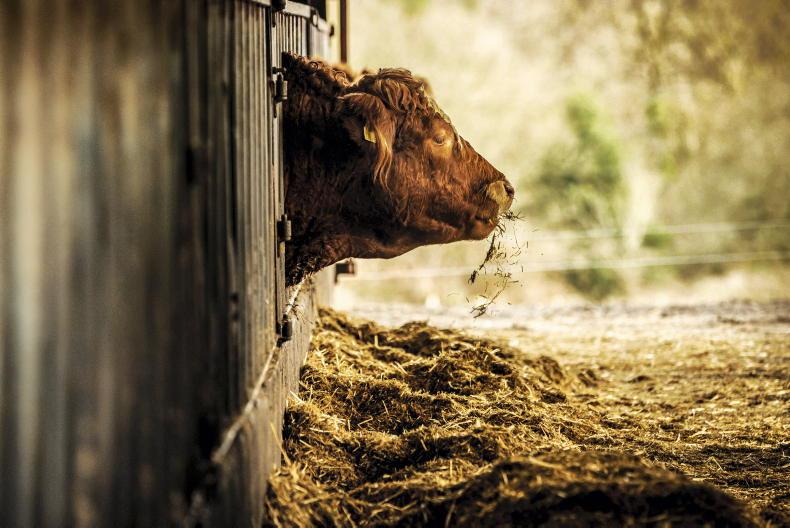At the current prices being paid for store cattle, if beef finishers are to cover costs this winter and achieve a very conservative £50/head margin, they will need to get an average of 407p/kg for U and R grading cattle next spring, analysis by the Irish Farmers Journal shows.
Take the example of a finisher purchasing a group of steers on 20 October at an average weight of 580kg.
Cattle are assumed to be mix of R+ and U- grading animals, with a purchase price of 210p/kg, which is in line with prices currently being paid in marts.
This brings the cost of buying the steers to an average of £1,218/head. Cattle are immediately housed and placed on a store diet of 30kg/day of average-quality silage and 4kg/day of concentrate.
Assuming the store diet period runs to 15 January, the group will eat an average of 2.6t of silage per head (£20/t) and 352kg/head of concentrate (£220/t).
Factoring in £10/head for veterinary and miscellaneous costs, total input costs during the store period amount to £140/head.
Weight gain over the outlined time frame is assumed at 0.6kg/day, bringing animals to 633kg by 15 January.
Finishing phase
From 15 January to 15 April, steers are moved on to the intensive finishing period, lasting 90 days.
During the outlined period, a finishing ration (£215/t) is fed at an average rate of 8kg/day, along with 20kg/day of silage, adding a further £173 to input costs.
Assuming weight gain averages 1kg/day across the group to reflect different genetic merit of animals, steers should have a final liveweight of 720kg. At 56%, the group will achieve an average carcase weight of 403kg.
Breakeven
Adding purchase price to the basic inputs, the animal has a final breakeven price of £1,531. At a carcase weight of 403kg, this equates to a breakeven beef price of 380p/kg.
However, there is no profit margin or fixed costs included in this example. Assuming a £50/head margin and £10/month for fixed costs (total of £60), this brings the break-even price to 407p/kg.
Sensitivity analysis
Reducing purchase price to 200p/kg reduces the break-even price to 365p/kg, excluding fixed costs and margin.
However, this will probably mean lower quality animals are purchased, and a lower end price achieved.
Reducing concentrate costs by £10/t reduces the breakeven price by 3p/kg.
Read more
Thrive open day - Watch: demonstration farm and system economics
TB programme costs to rise to almost €100m
At the current prices being paid for store cattle, if beef finishers are to cover costs this winter and achieve a very conservative £50/head margin, they will need to get an average of 407p/kg for U and R grading cattle next spring, analysis by the Irish Farmers Journal shows.
Take the example of a finisher purchasing a group of steers on 20 October at an average weight of 580kg.
Cattle are assumed to be mix of R+ and U- grading animals, with a purchase price of 210p/kg, which is in line with prices currently being paid in marts.
This brings the cost of buying the steers to an average of £1,218/head. Cattle are immediately housed and placed on a store diet of 30kg/day of average-quality silage and 4kg/day of concentrate.
Assuming the store diet period runs to 15 January, the group will eat an average of 2.6t of silage per head (£20/t) and 352kg/head of concentrate (£220/t).
Factoring in £10/head for veterinary and miscellaneous costs, total input costs during the store period amount to £140/head.
Weight gain over the outlined time frame is assumed at 0.6kg/day, bringing animals to 633kg by 15 January.
Finishing phase
From 15 January to 15 April, steers are moved on to the intensive finishing period, lasting 90 days.
During the outlined period, a finishing ration (£215/t) is fed at an average rate of 8kg/day, along with 20kg/day of silage, adding a further £173 to input costs.
Assuming weight gain averages 1kg/day across the group to reflect different genetic merit of animals, steers should have a final liveweight of 720kg. At 56%, the group will achieve an average carcase weight of 403kg.
Breakeven
Adding purchase price to the basic inputs, the animal has a final breakeven price of £1,531. At a carcase weight of 403kg, this equates to a breakeven beef price of 380p/kg.
However, there is no profit margin or fixed costs included in this example. Assuming a £50/head margin and £10/month for fixed costs (total of £60), this brings the break-even price to 407p/kg.
Sensitivity analysis
Reducing purchase price to 200p/kg reduces the break-even price to 365p/kg, excluding fixed costs and margin.
However, this will probably mean lower quality animals are purchased, and a lower end price achieved.
Reducing concentrate costs by £10/t reduces the breakeven price by 3p/kg.
Read more
Thrive open day - Watch: demonstration farm and system economics
TB programme costs to rise to almost €100m










SHARING OPTIONS